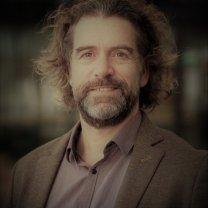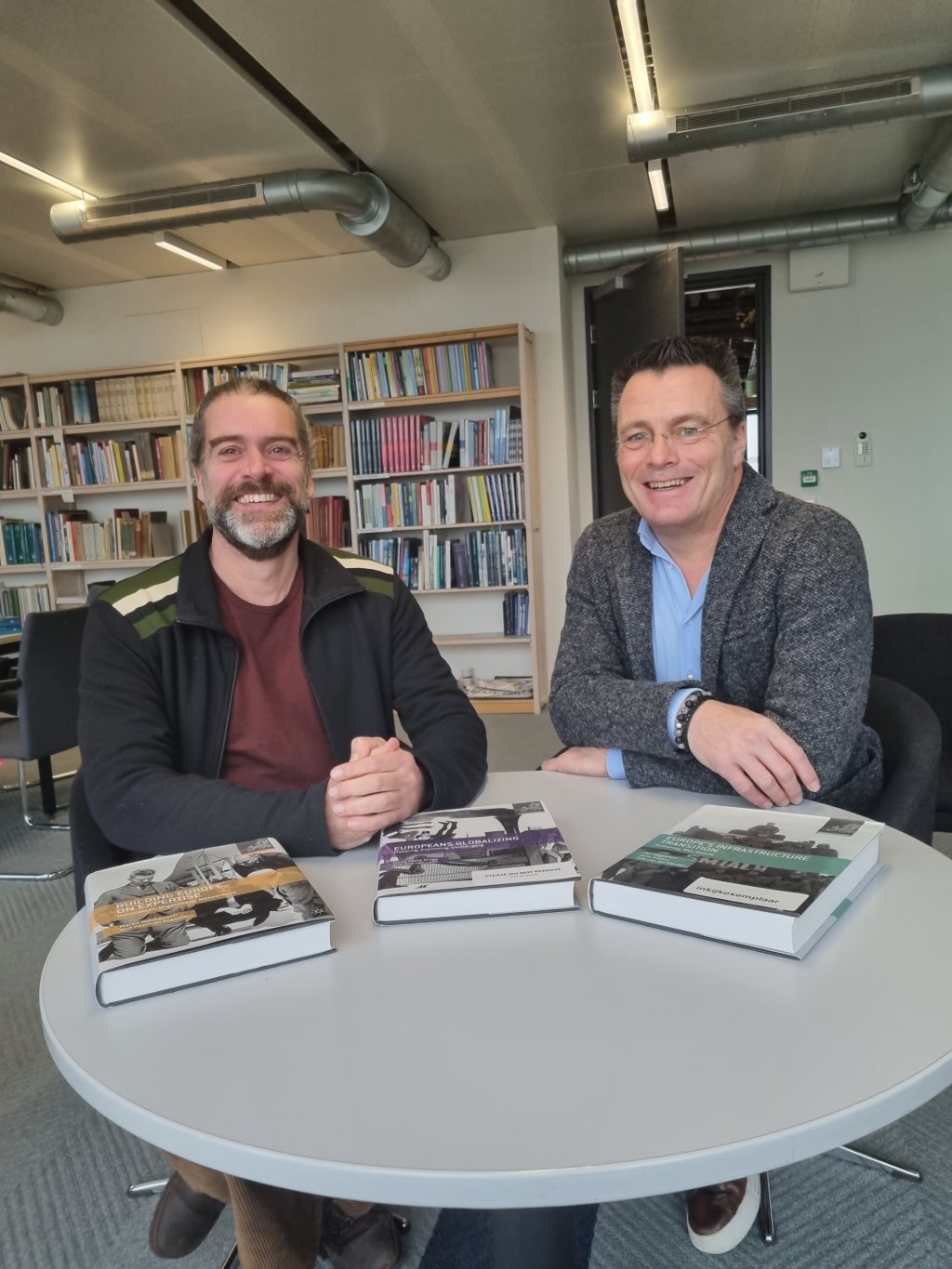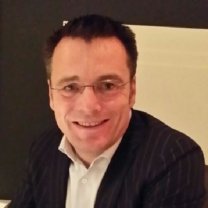Historical awareness expands insights of today's engineer
As of 1 January, a new centre has been added to the 4TU.Federation: 4TU.History of Technology. The centre aims to boost the discipline of history of technology. 4TU spoke to scientific director Erik van der Vleuten and managing director Jan Korsten about their plans and motivation. ''Historical awareness of the roles that technology and engineers have played in addressing past societal challenges is important and will be helpful in thinking about solutions to the societal challenges we face today and in the future.''
What is the reason for the foundation of a 4TU centre for engineering history?
Erik: we want to provide students, engineers but also the wider public with a historical awareness of the roles of technology and engineering in societal and sustainability issues.
Jan: Today, engineering history is more relevant than ever. The challenges we face are becoming increasingly complex and now affect everyone. To name a few: climate change is increasingly accompanied by violent storms and floods, raw materials are running out, and the increasing inequality between rich and poor. Technical universities are educating engineers to come up with responsible solutions. A historical understanding of the role that engineering has played over time will help them to do so.
When addressing this latter challenge, today's policymakers and innovators should certainly not forget the earlier democratisation agenda, but rather include it in designing new energy and mobility futures.
How do you turn historical insights into action opportunities that engineers can work with to solve current challenges? This is a new and dynamic research field, for which we will develop frameworks for research, intervention, and reflection.
And how will you engage the broader audience?
Erik: In the public debate, attitudes towards technology are often somewhat one-sided and simplistic. Technology is either seen as a problem cause, or as a salvation in a particular transition. Consider the use of robots in healthcare: Some view robots negatively, as a threat to personal attention for patients, while others view it positively, as a way to reduce workload and keep the health system up and running. The key is to uncover these and other meanings, and translate these into more inclusive and socially and environmentally robust decision-making and design.
By collaborating with, for instance, science museums and science centres such as NEMO and Discovery, and organizations such as the Rathenau Institute, we want to share our knowledge with the general public, if possible also on the basis of co-creation. We want to develop working methods in which we reflect together with social partners on the past-present-future connection, on how narratives of 'where we came from' connect or disconnect with narratives of 'where we want to go from here', and on which options for action such narratives make visible or hide. By collaborating with a broad variety of partners and engaging in a reciprocal fashion with broader public audiences, we hope to identity, and experiment with, a broader set of narratives and options for action. Finally, we want to actively employ the academic heritage of the four technical universities in this endeavour. This may also involve exhibitions travelling around the country.
Jan: It is important that the role of engineering is visible in history books. This is something that historians of technology have successfully worked towards in recent decades. Technology has had a huge and pervasive impact on shaping our society. This can be seen everywhere. The current digital transition, for instance, has a long history from punch card machines through analogue and digital computing techniques and devices, to AI applications. Dutch engineers, working at universities and in company laboratories, helped initiate this revolution.
It is important that this story is also told in secondary schools. The centre will develop plans for this.
What is the added value of collaborating with four TUs in this field?
Jan: By working together in a centre, we can bring together all the knowledge and expertise available at the four technical universities in the field of technological history. Previously, this was fragmented across the different universities.
Erik: In the field of education, we would like to develop joint courses and curricula and perhaps work towards a joint master's programme, so that students at all TUs have access to interesting and relevant courses in this area-for example, about how the engineering community envisioned its role in solving social problems, what eventually went wrong, and what was learned from it.
In doing so, we simultaneously show that engineers have a rich tradition as a community, something that, in our experience, students and perhaps colleagues know very little about. The opportunity to work on societal problems has been an important driver since the emergence of the civil engineering profession some two centuries ago (ed.: before then, ‘engineers’ were military engineers). Engineers contributed to the material shaping of society by constructing buildings and roads, railways and canals, waterworks and communications, agriculture and food supply and much more. Understanding past engineering visions, concerns, dilemmas, setbacks and choices helps create awareness about the societal roles of the engineering profession and community. We think that is important in its own right, but certainly also in the light of engineering efforts to address ongoing societal and environmental challenges.
We are considering organising an annual symposium, and next to history of technology experts and social partners, this may also involve the alumni networks of the four TU’s, the Royal Institute of Engineers (KIVI) and the Netherlands Academy of Engineering, all of which have an interest in understanding and debating the role of technology and the engineering community in societal challenges and transitions.
By the way, we also want to collaborate with so-called ‘general universities’ as well as Medical Centres outside the TUs, such as Maastricht, the RUG, EMC and more. Some of these host engineering programs. Others have relevant research groups on the history of science, engineering and society. The same is true for the universities of applied sciences. As such, we have the ambition to be an ‘open’ centre, a site to collaboratively research, teach and engage the connected histories and futures of technology and socio-environmental change.
Jan: As a 4TU centre, you are also a more attractive partner for external organisations to collaborate with than you are as an individual university. Cooperation with many different social partners is important for the quality of the research programmes and offers opportunities to transfer our knowledge to the wider audience. For instance, we are in the process of setting up a network of social partners around our research themes. On the theme ''The digital transition'', we cooperate with the Rathenau Institute and on the theme ''The mobility transition'' with organisations such as Rijkswaterstaat, ROVER and the Fietsersbond. And with museums such as NEMO, Rijksmuseum Boerhaave and the Discovery Museum, we try to reach the general public.
Erik adds: As a centre, it might also be easier to attract research funding. Currently, together with the four TUs and external parties, we are conducting research into the sustainability transition then, now and in the future in the umbrella programme Global Sustainability: Pasts, Presents and Futures. Two project proposals within this programme were recently awarded by NWO. And for funding long-term research, NWO's Zwaartekracht programme and the Nationale WetenschapsAgenda are interesting options. Initiatives from our centre to build consortia are in progress. These kinds of funding rounds offer a great opportunity for collaboration and to further expand our colelctive research capacity, which currently is rather fragmented.
And the Netherlands is at the forefront of international cooperation. We collaborate with the Society for the History of Technology and the Tensions of Europe Network - Jan is the secretary of both organizations. In addition, we are in the process of establishing research, teaching and engagement collaborations with universities in Africa, Asia and South America; for it is crucial to reflect on societal and environmental issues from both Global North ànd South perspectives if we are to avoid Eurocentric tunnel vision.
Finally, how did your interest in the history of technology originate?
Erik: I started as an electrical engineering student, but my interest shifted after a few years to the interaction between humans and technology, especially engineering philosophy, sociology and history. Questions such as what human choices played a role in the final shape of major infrastructures such as the electricity system fascinated me, but also the other way around. For example, infrastructure builders and users have shaped the Netherlands and Europe materially, socially, economically and ecologically, perhaps even more pervasively than the politicians of classical political history. Eventually, I did my PhD in a history of science and technology program in Denmark. When I was subsequently located in Paris, I was asked to apply in Eindhoven for a postdoc position in the national history of technology programme that ran in the late 1990s. There I became a professor in 2015.
Jan: I completed commercial history at the HEAO (ed: now HBO Business Studies) and then studied socio-economic history in Nijmegen. Through lectures on the history of business and technology, I developed an interest in the history of technology. Eventually, I obtained a PhD with research into the historical role of the farmers’ association in Limburg (Limburgse Land and Tuinbouwbond). In 1999, I joined the Foundation for the History of Technology (SHT) as business director. 4TU.History of Technology takes over SHT's coordinating role within the field. This is important, because the structure of a 4TU centre offers many more opportunities to make progress on the lines of research, education and impact and to ensure that the discipline can develop to its full potential!








